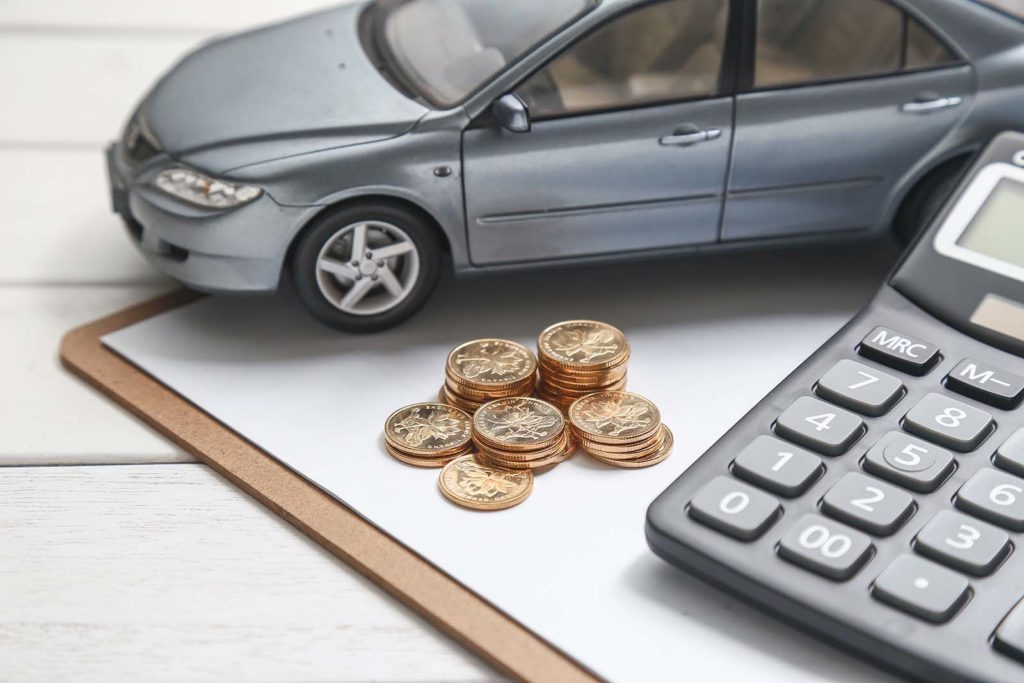A Trust Deed is an insolvency solution in Scotland that involves making reduced payments towards debt over a period of several years, with any remaining unsecured debt being written off. PTDs are a popular debt solution, with more than 10,000 in place at the start of 2019 alone.
Protected Trust Deeds are only available in Scotland, however, an Individual Voluntary Arrangement (IVA) provides a similar (but not identical) solution for debtors in England, Wales and Northern Ireland. Another alternative could be a Debt Management Plan.
Read on to learn more about how it works, the ways that they benefit debtors and how you can get a one yourself.
What is a trust deed in Scotland?
A trust deed is a legally binding agreement suitable for people living in Scotland who are struggling with unsecured debts that outweigh the value of their assets. To qualify a debtor must have £5,000 or more of unsecured debt, which can include things such as personal loans, store cards, catalogue and credit card debts. In simple terms, it is an agreement between a debtor and a licensed Insolvency Practitioner (sometimes referred to just as an IP) who acts as a trustee of your assets, managing agreements with any creditors.
A trust deed involves an agreement that your creditors will freeze your debts and not add any further interest or charges to them, in return for you paying back what you can realistically afford – a figure that will be worked out between you and your Insolvency Practitioner after making a budget. They typically last for a period of 4 years, after which any remaining debts that were included within the agreement will be written off. A trust deed becomes ‘protected’ if the creditors holding the majority of your debt agree to it.
Once you have entered into a Protected Trust Deed your creditors will no longer contact you to chase for payment and, provided that you keep to the terms of your agreement, they are unable to commence legal proceedings against you to recover the debt. This also means, if diligence (the name used in Scotland for debt collection following legal proceedings) has not already started, you will be protected from any legal action in respect of included debts.
What is a protected trust deed agreement?

A Scotland trust deed agreement could refer to one of two things; either the agreement between a debtor and the Insolvency Practitioner acting as their trustee, or the agreements struck with creditors to accept a lower repayment amount as part of this insolvency solution.
You cannot set up a protected trust deed without the help of an Insolvency Practitioner (usually a solicitor or an accountant), who will work with you to create a proposal that will be put to your creditors. To work with an Insolvency Practitioner, you will most often have to sign an agreement appointing them as your trustee and enabling them to set up and administer your agreement.
When a trustee has been appointed, they will work with you to establish how much spare income you have after paying for essential costs such as accommodation, utilities and food. Any remaining money is expected to be put towards paying off your debts at a lower rate than was originally agreed with your creditors. Under a protected deed, any agreement with your creditors will normally include a provision for them to write off any unsecured debt that remains at the end of the period.
How long does it last?
A Scottish trust deed usually lasts for a period of 4 years, after which time any remaining debts that were included in an agreement with your creditors will be written off.
Even after a PTD has come to an end, it may continue to affect your ability to access further credit. This is because details of your agreement will remain on your credit file for a period of 6 years from when it began, whilst your name will appear on the Scottish government’s ‘Accountant in Bankruptcy’ (AIB) register for the duration of the arrangement.
Trust Deed Pros And Cons
A Scotland’s trust deed is often viewed as a direct alternative to sequestration (bankruptcy) or the Debt Arrangement Scheme (DAS) for debtors in Scotland. But what exactly are the benefits?
As with any debt solution, it comes with their own advantages and disadvantages, which we have summarised below:
Advantages | Disadvantages |
| You can arrange to make more affordable repayments to your debts over a period of 4 years, after which the remaining debt is written off. | You can only get a Protect Trust Deed with the help of an Insolvency Practitioner, who will usually charge for their services with the sum being taken directly from your monthly repayment. |
| Although you may have to sell some assets, you are normally able to keep one essential vehicle provided it is worth less than £3,000. You can also keep you home, but may need to release equity from it if you are a homeowner. | It could affect the terms of your employment, dependent on your industry and the approach taken by your employer. |
| Whilst a PTD is a formal insolvency solution, you will not need to appear in court. | If your deed fails, sequestration (bankruptcy) can become a very real risk. |
| Your creditors will no longer chase you to recover debt and they cannot commence legal proceedings. You are also not prevented from taking out further credit. | It will remain on your credit file for 6 years from the date it begins and may make getting further credit more difficult. |
How will a trust deed affect my life?

Entering the arrangement can be very beneficial for some debtors in Scotland, as it helps them to deal with their financial issues. Despite this, the process can still have a significant effect on your life and it is important to be aware of all the possible consequences for you before making a decision.
Property
In most cases, debtors subject to a deed can keep their home – whether rented or mortgaged. For homeowners, however, it may be necessary to release some equity from the property to satisfy at least part of any outstanding debt.
Equity could be released by re-mortgaging the property, seeking funds from family or friends, or simply selling the property. What is most appropriate will depend on your own circumstances and an Insolvency Practitioner will be best placed to advise you.
Vehicles
Typically, a trust deed does not prevent a debtor from keeping their vehicle – particularly where it is necessary for them to commute to work. An essential vehicle valued at less than £3,000 will not be considered a realisable asset and so it will not be necessary to sell up. If your vehicle is worth more, however, you may be asked to trade it in for something less expensive to free up money to pay towards your debts.
Car finance is a slightly more difficult topic, but you will generally be able to continue making contractual repayments provided that they are not deemed excessive. In any case, it’s important to provide details of any finance agreements to your Insolvency Practitioner before entering a PTD.
Savings
If you happen to have a significant savings pot prior to starting the agreement, it is possible that you will have to contribute most (if not all) of the money towards your debts.
During the course, the budget prepared in partnership with your Insolvency Practitioner may well make allowances for you to save as much as £30 per month as a ‘contingency’ fund. This money is intended to be kept aside for one-off emergency payments for things such as MOTs and household repairs. If you do find that you can save a considerable sum during the plan, your trustee will consider increasing the amount you pay to your creditors on a regular basis.
Pension
Pension funds are not counted as assets for the purposes of deciding the terms of a trust deed. Despite this, any money that you are drawing from a pension will be counted as part of your regular income and will factor into how much you are expected to repay to your creditors.
If you are still employed and paying into a pension, you may be asked to reduce your contributions as part of your budget to ensure that you are paying a sufficient sum of money back to your creditors. The exact expectations placed on a debtor will vary depending on your circumstances and further guidance can be gained from your Insolvency Practitioner or financial advisor.
How to get a trust deed in Scotland?

To get a trust deed, you will need to meet the basic criteria – namely that you have unsecured debts of £5,000 or more which exceed the value of your assets. An example might be a person who has debts of £10,000 versus only £4,000 worth of assets. You will also need to have enough disposable income to make regular repayments to your creditors after you have paid for essential costs such as accommodation, travel and food. Note that if your disposable income is high enough that you could reasonably be expected to pay off your debts within 4 years without the help of an insolvency solution, you will not be eligible for a protected trust deed.
The first step is approaching an Insolvency Practitioner who will act as your trustee. Once you have an agreement in place with them, they will contact your creditors and seek to administer the repayment of the debt under the arrangement. Once the creditors who hold the majority of your debt agree, your trust deed can become protected and creditors can no longer take legal action against you or chase you for the debt.
Can I cancel a trust deed?
A trust deed is a legally binding agreement and so cannot simply be cancelled without consequences. The terms will vary from person to person and depend on their Insolvency Practitioner and so any attempt to cancel will require their input and guidance.
If you are unable to make the payments agreed with creditors, your trust deed may well fail and this could result in your sequestration (bankruptcy).
Can I get out?
As mentioned previously, a trust deed is a legally binding agreement and it is not easy to exit such an arrangement once it’s in place. That being said, in certain circumstances, it is possible to end early provided you have the agreement of your Insolvency Practitioner. The process is likely to involve them writing to your creditors advising them that they intend to discharge the agreement.
In most cases, discharging a trust deed will put you in the same position as if you had not entered into such an arrangement and you may need to explore other insolvency solutions such as a DMP or the Debt Arrangement Scheme (DAS). In some cases, creditors may feel that it is necessary to apply for sequestration (or bankruptcy).
What debts cannot be included in a trust deed?
Protected Trust Deeds in Scotland are generally a very broad debt solution that can include any unsecured debts including personal loans, credit cards, payday loans, council tax arrears, HMRC debts and more.
Despite this, certain debts cannot be included and they are:
- Secured loans, mortgages or any other loan secured over a property, vehicle or home furnishing
- Court Fines
- Debts obtained fraudulently (for example if you applied for a loan under somebody else’s name)
- Crisis loans from the Department of Work and Pensions’ social fund
- Student loans

